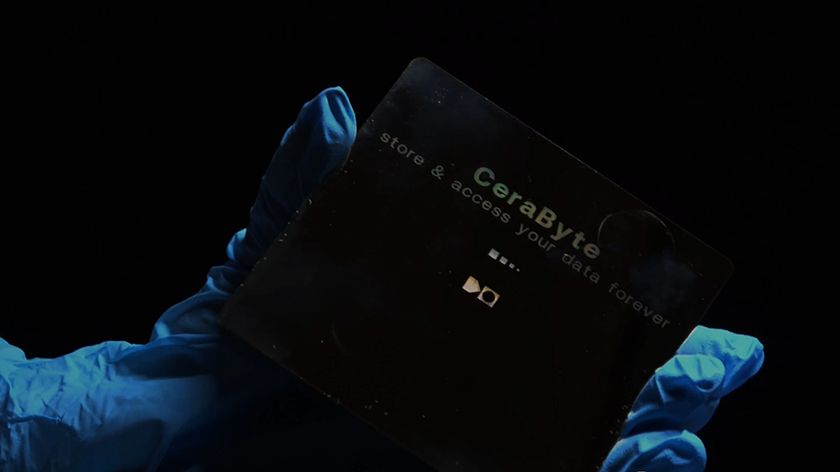Similarly, joining groups is great as long as they're relevant and acceptable. By acceptable, we suggest you devote serious thought before you join the 8,000-strong 'Vote British National Party' group, whereas joining 'Super carpenters of the world' is fine if you build things out of wood.
Getting personal
The best sort of profile is one you make yourself. A personal website is your most public-facing presence, and it requires no connecting or befriending to view.
There was a time not so long ago that owning a domain name based around your real name was seen as egotistical and unnecessary unless you were actively promoting your trade. Nowadays, it's a vital step in establishing your online identity. If your name isn't unique, try including your middle name, or looking for alternative top-level domains such as '.name' or '.me'. While it might not be as iconic as a '.com', it's how you promote that domain that counts.
A personal website will often be the first port of call for anyone searching for information about you. To give a good first impression, make sure that it features a clearly written summary of who you are and what you do. Other good ideas are to make it simple to navigate and text-based as opposed to Flash-based, as Flash offers little for search engines to latch on to.
The best use of your personal site is to clearly define yourself and what you do while providing a platform from which to access your other sites. This makes sure that anyone doing a little digging is able to follow your online paper trail accurately. How you use your personal site is down to what your aims in marketing yourself are. Do you simply want people to know who you are and what you're good at, or are you advertising a professional service? Do you want to make a name for yourself as a nice guy with an eclectic music taste or as a trustworthy and high-lying businessman?
The most common personal sites take the form of blogs. Keeping an online record of your life can be risky, but what will show you up far more than content is the frequency of your posts. Unlike a static portfolio-style site, a blog needs constant attention to keep its readers – and search engines – interested, and going for weeks without posting may give the impression that you find it hard to commit to things.
Get daily insight, inspiration and deals in your inbox
Sign up for breaking news, reviews, opinion, top tech deals, and more.
To make yourself stand out, the information that you provide needs to be unusual and unique. Simply posting links to interesting content elsewhere on the web will give your audience some impression of the sort of things you're interested in, but it will also starve them of your own voice.
While a personal site does need to be just that, try to take a step back and market yourself as a PR might. You'll find that unlike on social-networking sites, the majority of personal statements on personal websites are written in the third person. 'David is a leading developer' sounds less inflated and more authoritative than 'I am a leading developer'.
Try to avoid cliché; stating that you enjoy good food, relaxing with friends and walks on moonlit beaches won't get you anywhere. A bit more detail will create far more interest and increase the chance that your audience will connect with you on an emotional level. Stating a particular dish you like or the name of your favourite beach will do far more for how people perceive you. Similarly, negativity is a terrible thing. Resist the urge to list your pet hates; even if you're the happiest person in the world, you'll portray a very negative image of yourself.












